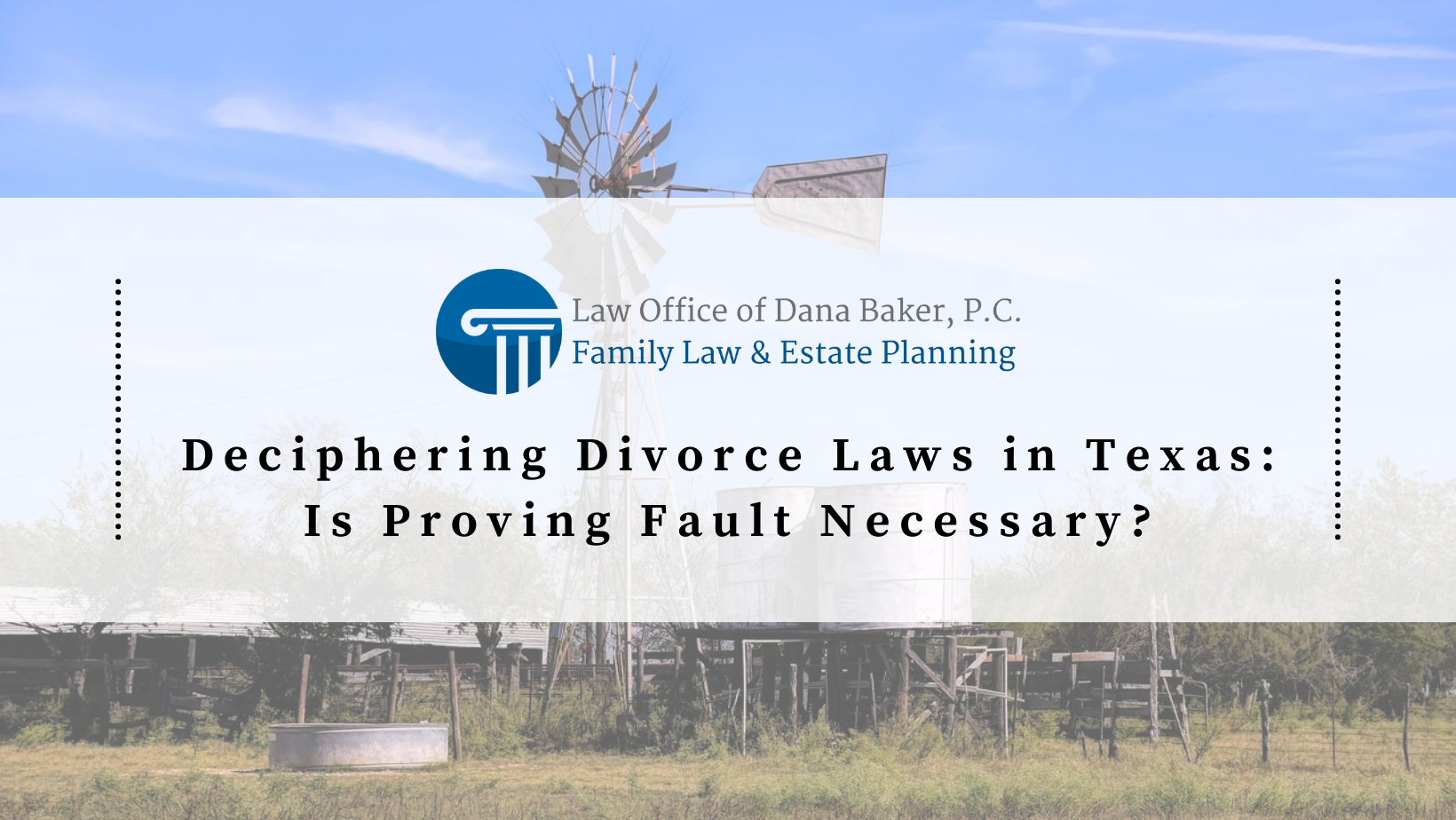Schedule Your Free 15-Minute Phone Consultation
(979) 865-0000

Navigating the complexities of divorce law in Texas can be daunting, particularly when it comes to understanding the grounds for divorce. One question that frequently arises in my practice as a Texas family law attorney is whether you need to prove fault to obtain a divorce. In this blog post, we’ll delve into the grounds for divorce in Texas, exploring the implications of fault and no-fault divorce.
What Are the Grounds for Divorce in Texas?
Texas law recognizes both fault and no-fault grounds for divorce. This gives spouses the flexibility to choose the basis for their divorce depending on their unique circumstances.
A no-fault divorce is where you don’t have to blame your spouse for the breakup. In Texas, the most common ground for a no-fault divorce is “insupportability,” which means that the marriage has become insupportable due to discord or conflict of personalities that destroys the legitimate ends of the marital relationship and prevents any reasonable expectation of reconciliation.
Choosing a no-fault ground can be beneficial for several reasons. It often reduces conflict and legal complexities, leading to a smoother divorce process. It’s also not necessary to prove that your spouse did something wrong, which can make the process less contentious.
In some cases, one spouse might choose to file for a fault-based divorce. The recognized fault grounds in Texas include:
Implications of Choosing Fault Grounds:
Choosing fault grounds for divorce may have implications on various aspects of the divorce settlement, such as child custody, division of property, and spousal support. Proving fault can potentially impact the court’s decisions, particularly in property division and spousal support. However, proving fault can also make the divorce process more contentious and prolong it, potentially increasing legal costs.
When considering a divorce in Texas, it’s crucial to understand the differences between fault and no-fault grounds and the potential implications of each. The decision will depend on your individual circumstances, including the nature of your marital issues, your goals for post-divorce life, and the potential impact on children and finances. Consulting with a knowledgeable Texas family law attorney is advisable to discuss the specifics of your case and decide the best course of action.
If you’re navigating the complexities of Deciphering Divorce Laws in Texas: Is Proving Fault Necessary, you don’t have to do it alone. The Law Office of Dana Baker is here to guide you through every step, providing personalized legal solutions tailored to your unique situation. Don’t let legal challenges overwhelm you. Schedule your consultation with Dana Baker today and secure the dedicated, expert representation you deserve. Your path to resolution starts here.